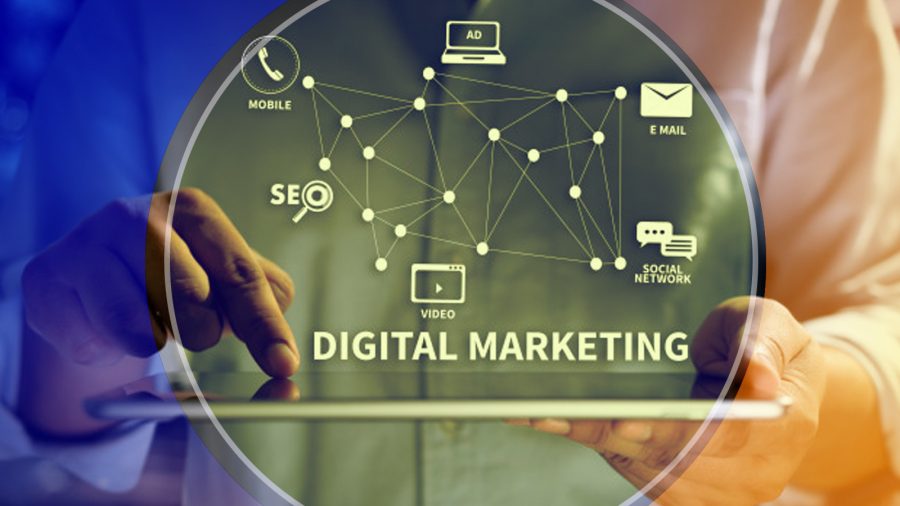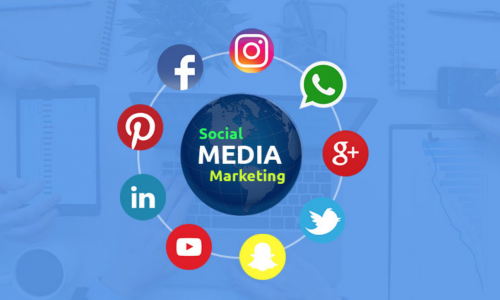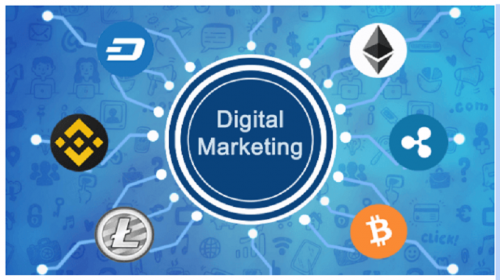Let’s be real: digital marketing is the future. In fact, it’s not even just the future anymore – it’s the present. So start your career in this era by getting a top-class digital marketing course in Delhi. With more and more people turning to the Internet for everything from shopping to socializing, it only makes sense that businesses would follow suit and start implementing digital marketing strategies. Digital marketing has many advantages, but what are they? We’ll discuss them below. Before navigating to the benefits of digital marketing, let’s explore what digital marketing is, the scope of digital marketing, and the tools used in digital marketing.
What is Digital Marketing?
In this technology-driven era, digital marketing has become the norm of the day, and its importance continues to grow with every passing day. In simple terms, digital marketing is the promotion of products or services using electronic media. It’s a process that includes several activities such as search engine optimization (SEO), social media marketing, email marketing, content marketing, and mobile marketing.
Scope of Digital Marketing
The scope of digital marketing is vast, and its applications are diverse. People use digital platforms to find information about anything that interests them. Businesses can leverage this by creating content that resonates with their target audience and sharing it on social media platforms to generate leads or drive traffic to their websites.
The scope of digital marketing is not just limited to large businesses with deep pockets. Small businesses can also benefit from digital marketing tactics like local SEO or PPC advertising as well as guest posts and email marketing campaigns.
Benefits of Digital Marketing
Digital marketing has several benefits for businesses of all sizes. One of the major advantages is the ability to reach a wider audience than traditional marketing methods. By utilizing digital channels, businesses can reach potential customers in different geographies, demographics, and even languages. This can be particularly beneficial for businesses that operate globally or have a diverse customer base.
Another advantage of digital marketing is its cost efficiency. Traditional advertising methods, like television or print advertising, can be expensive and not as targeted as digital marketing. With digital marketing, businesses can target specific audiences with precision and reach them at a lower cost.
Additionally, digital marketing provides measurable results that allow businesses to track their performance and make data-driven decisions. By analyzing metrics like website traffic, conversion rates, and engagement rates on social media platforms, businesses can adjust their strategies to optimize their results.
Tools Used in Digital Marketing
To effectively execute a digital marketing strategy, several tools are used to achieve desired results. These include:
1. Search Engine Optimization (SEO): This involves optimizing a website’s content and structure to rank higher in search engine results pages.
2. Social Media Marketing: Businesses use social media platforms like Facebook, Instagram, and Twitter to promote their products or services and engage with their audiences.
3. Content Marketing: This involves creating valuable content such as blog posts or videos that educate or entertain audiences.
4. Email Marketing: Emails are sent out to subscribers to keep them informed about new products or services as well as promotional offers.
5. Pay-per-click Advertising (PPC): With PPC advertising, businesses pay for each click on an ad that is displayed on search engines or social media platforms.
Importance of Digital Marketing
Digital marketing is crucial in today’s business environment, where consumer behavior has changed significantly. Consumers are more likely to turn to the internet for information about products and services before making a purchase decision. Businesses need to ensure that they have a strong online presence if they want to stay competitive.
Digital marketing allows businesses to reach out to more people at a lower cost compared to traditional advertising methods. With digital campaigns, you can target specific demographics and measure your results with detailed analytics.
Here are the top 15 benefits of digital marketing:
1. Cost-effectiveness: One of the biggest advantages of digital marketing is that it’s often much cheaper than traditional marketing methods. You don’t need to spend a fortune on print ads or billboards – instead, you can use social media, email marketing, and other digital channels to reach your target audience.
2. Targeting: With digital marketing, you can target your message to specific demographics, interests, and behaviors. This means that you’re only showing your ads to people who are most likely to be interested in your product or service.
3. Measurability: With traditional marketing, it can be difficult to measure the success of a campaign. But with digital marketing, you can track engagement, clicks, conversions, and other metrics in real-time.
4. Flexibility: Digital marketing allows you to pivot quickly and easily if something isn’t working. You can adjust your strategy as needed based on the data and insights you gather.
5. Global reach: The internet has no borders – with digital marketing, you can reach customers all over the world.
6. Accessibility: Digital marketing makes it easier for people with disabilities to access information about your products or services. For example, screen readers can help visually impaired users engage with your website content.
7. Personalization: By collecting data on your customers’ behavior and preferences, you can create personalized experiences that are tailored to their individual needs.
8. Engagement: Digital marketing allows for two-way communication between businesses and customers. This means that you can build relationships with your audience and create brand loyalty.
9. Speed: With digital marketing, you can get your message out quickly and efficiently – sometimes in a matter of seconds.
10. Scalability: Digital marketing is easily scalable – whether you’re targeting a small niche or a massive global audience, there are strategies and platforms that can accommodate your needs.
11. Integration: Digital marketing strategies can be integrated with other areas of your business – such as customer service or sales – to create a more cohesive experience for customers.
12. Data-driven: Digital marketing is based on data and insights. By analyzing your customer’s behavior and preferences, you can make more informed decisions about your marketing strategy.
13. Creativity: Digital marketing allows for a lot of creative freedom – from designing eye-catching ads to crafting compelling social media posts.
14. Competitive advantage: If your competitors aren’t using digital marketing strategies, you can gain a competitive edge by being ahead of the curve.
15. Sustainability: Digital marketing is more sustainable and eco-friendly than traditional marketing methods. You don’t need to print flyers or mail catalogs – everything is done electronically.
In conclusion:
Digital marketing offers businesses a wide range of benefits – from cost-effectiveness to creativity. As we continue to move towards a more digital future, it’s essential that businesses embrace these advantages and adapt their strategies accordingly. By doing so, they’ll be able to reach new customers, build stronger relationships with existing ones, and ultimately drive growth and success for their organization.









